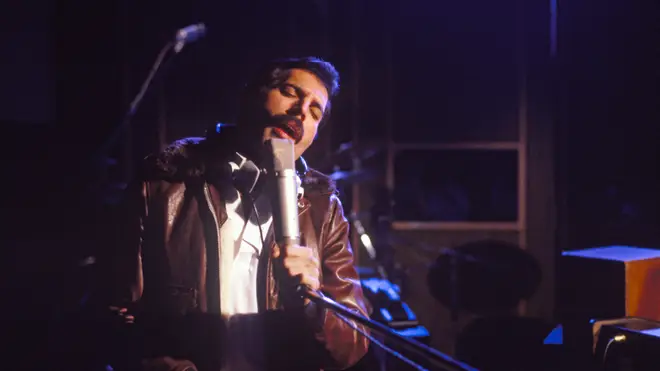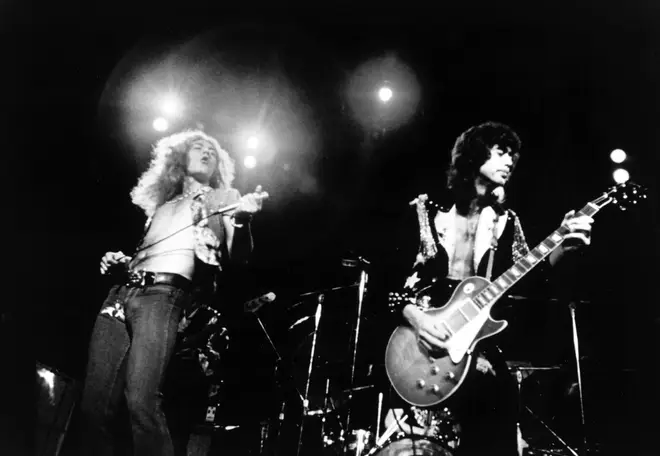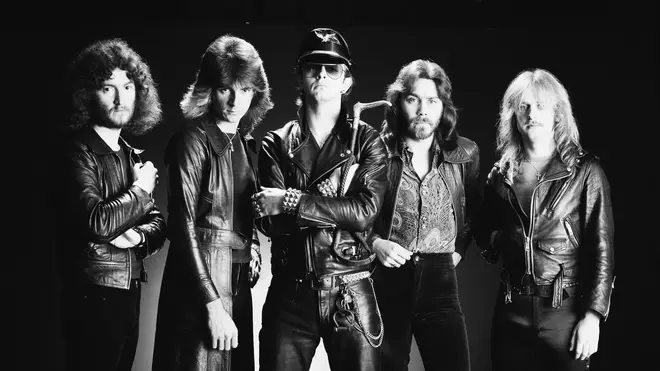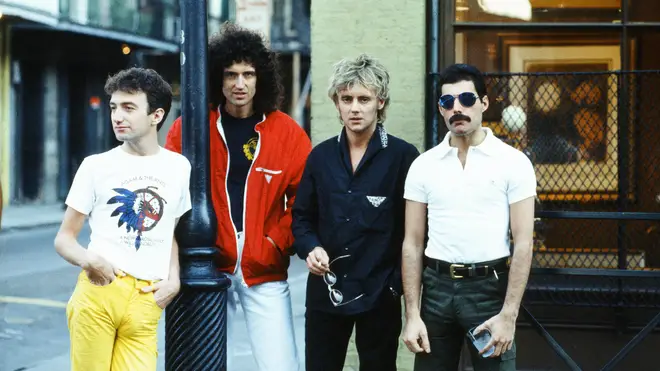On Air Now
Radio X Chilled with Dan O'Connell 7pm - 10pm
22 August 2024, 18:05

Was Freddie Mercury really trying to corrupt the nation’s kids on the band’s 1980 funk classic?
If you’ve seen the biopic Bohemian Rhapsody, you’ll be familiar with the scene: Queen are in the recording studio plugging away at another song when singer Freddie Mercury bursts in and insists that the band throw away their rock roots and focus on the “new sounds” coming out of the clubs.
The result is Another One Bites The Dust, a funky slab of attitude with a killer bass line and soulful vocal from Mercury. It made Number 7 in the UK charts, but was a massive success in the US, topping the Billboard Hot 100 for three weeks following its release in Autumn 1980.
But it was actually Queen bassist John Deacon who was the driving force behind the son - he’d been hanging out with the the legendary disco pioneers Chic and had learned a thing or two from the powerhouse of Nile Rodgers on guitar and Bernard Edwards on bass.

Queen - Another One Bites the Dust (Official Video)
While Another One Bites The Dust brought Queen to a whole new audience in the States, it also attracted some unwanted attention - that of fundamentalist Christians.
Another One Bites The Dust, claimed some ministers, held a “secret” backwards-masked message: “It’s fun to smoke marijuana”.
Was it true? Were Queen suggesting you get involved with illegal drugs? Listen for yourself, thanks to this YouTube clip - when Freddie hits the chorus, some enterprising soul has taken the trouble to flip the track into reverse:

Queen Another One Bites the Dust Backwards Subliminal Drug Message
Where had this frankly dubious claim come from? The idea of “subliminal messages” in advertising had been a concern since the late 1950s with the publication of the book The Hidden Persuaders. The idea that messages could be placed in films, TV and even music without you noticing disturbed people. Was this brainwashing?
When The Beatles started to record instruments backwards for the unusual effect on the Revolver album, stoned hippies across the world began to wind their favourite records in reverse to find more revelations.
The culmination of this silliness was the “Paul Is Dead” rumour of 1969, in which The Beatles themselves laid clues in reverse and hidden on their album sleeves to “cover up” the fact that Paul McCartney had died three years earlier. He hadn’t.

But the urban myth grew and with the emergence of heavy rock in the 70s, bands like Black Sabbath, Led Zeppelin and AC/DC played with imagery that recalled horror movies, the occult and the Highway To Hell.
James Gilbert, minister at the Church Of Christ in Kaufman, Texas told the Iowa Telegraph Herald in October 1981: “A subliminal message is a message that’s below a discernible level. Your conscious mind hears one thing, but your subconscious mind can pick the other up. That’s what’s so aggravating.
“They’re messing with our mind and you don’t even know it. Subliminal persuasion is as close to mind control as you can get. The occult influence is the part that bothers me the most. Groups like Led Zeppelin, Fleetwood Mac, The Eagles and The Rolling Stones - the are really into the occult.”
So how did poor old Queen get dragged into this madness?
One of the first religious leaders to speak out against Queen’s apparent secret message was Michael Mills, Minister Of Youth And Evangelism At The Family Altar Chapel, Battle Creek, Michigan, whose Christian radio show in 1981 specialised in clips of “satanic messages”.
Everyone from The Beatles, The Rolling Stones, KISS, Acca Dacca and the Lord Of The Rings whimsy of Led Zeppelin were dragged into the controversy. Apparently playing Led Zep’s rock warhorse Stairway To Heaven backwards brought up the lines “There’s no escaping it my sweet Satan” and “Will will sing because I live with Satan.”

Led Zeppelin Backward Masking 1983 (Televangelist)
In one of his shows, Mills announced: “The music group Queen has a message for you. In their album A Night At The Opera, they sing ‘Beelzebub has a devil put aside for me’. In their hit Another One Bites The Dust, their hidden message - in reverse - is ‘Some of us smoke marijuana’.”

This all sounds fairly ridiculous - as we know from the Bohemian Rhapsody film, Freddie Mercury's notorious parties were a lot more boisterous than sitting around "smoking marijuana". But there were serious consequences.
In 1990, Judas Priest, heavy rockers from that noted satanic hotspot West Bromwich, were taken to court in the US by the parents of two teenagers who had attempted to take their own lives.
18-year-old Raymond Belknap had been successful and died from a shotgun blast; the other, 20-year-old James Vance, survived but had life-changing injuries from the gunshot. The parents blamed Judas Priest for including a “backwards-masked satanic message” imploring listeners to “Do it…” on their album Stained Class.
Priest frontman Rob Halford later told Rolling Stone of his dismay over the case: “These two boys were massive Priest fans, and that made it even more heart-wrenching that this terrible combination of the night and the drugs and the booze and their state of mind turned into something quite terrible.”

The case was dismissed, but it was worrying all the same. As for Another One Bites The Dust, it has continued to bring some good into the world - the solid rhythms from drummer Roger Taylor are just the right number of beats per minute to be used when applying CPR to a victim of cardiac arrest.
“If they ever have to perform CPR, they’ll be hoping the person they’re working on doesn’t bite the dust,” St John’s Martin Wells joked when trying the song at a first aid training session.